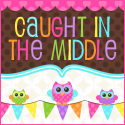If you follow this blog at all, you know that much of my inspiration often comes from stories heard on NPR. This post is no exception. Recently, while running errands in the afternoon, I heard a story on All Things Considered about "teachers as performers" and the disparity between this reality and the extent to which we prepare teachers for this role in college and other degree programs.
In the story, teacher Amanda Siepiola describes channeling Bruce Springsteen and his seemingly effortless way of capturing a crowd of thousands. The story goes on to discuss the extent to which good teachers are not only fluent in curriculum, pedagogy, and content material, but also in performing.
This story struck me for three primary reasons. Firstly, I come from a family with more than a few devoted Bruce Springsteen fans. I have also felt many times that there was an element of performance and 'art' to the way that I teach, so the message of this story struck a chord. Finally, I felt a little more connected to this article since Bruce Lenthall, the executive director of the Center for Teaching and Learning at the University of Pennsylvania, was a professor of mine back when he was a visiting history lecturer at Bryn Mawr College.
Particularly in the comments section of the webpage for the story, many seem to have too literal an understanding of what exactly it is like and feels like to be both the "performer" and the student in the performance. Firstly, there is an implication in both the story and the comments that performances are one-way directional experiences and that, as a result, in order to consider a teacher a performer, we must be referring to a lecture-based, teacher-centered classroom. I don't believe that this really needs to be the case.
Speaking to this point, the example of Springsteen is particularly apt. When you see Springsteen, you don't watch him in wonder. He does more than just entertain you; you are part of the show. Otherwise reserved people can be seen dancing in the aisles. Fans bring posters with hundreds of non-Springsteen song titles, essentially challenging him and the E-Street Band to an impromtu jam session of Jackie Wilson's "Higher and Higher" or even "Santa Claus is Coming to Town." The audience watches Bruce and he plans the basic trajectory of the show, but the show changes based on the crowd and the location and the guidance of the audience.
Above is a photo, albeit a crummy cell phone picture, of a Springsteen show that I attended in 2012. It was his last ever show at Philadelphia's Spectrum before it was demolished, a fact that only added to the personal nature of the show. Bruce has banners emblazoned with his record-breaking number of sell-outs at the venue right along side retired player numbers. During each show, the house lights are turned on and the crowd is reminded that they are surrounded by "a few thousand of their closest friends." Minutes after this picture was taken, Bruce was running through the crowd, bringing fans on stage, and playing requests right from the crowd.
Perhaps this is a better description of the performance aspect of teaching. Outside the small minority of purely student-driven, inquiry-based classrooms (which also have their limitations as discussed here), the teacher brings a particular set of skills, experiences, and/or knowledge and guides the trajectory of the course based on specific curriculum and standards. The teacher's role is also not just to keep the kids "entertained," but also to engage and inspire.
Indeed even if a teacher does decide to embrace a methodology that shies away from lecture- or teacher-based instruction, it is clear that his or her enthusiasm will add interest and authenticity to the lesson, and perhaps this is just as much the so-called performance of teaching. Maybe the better question is, what does teaching look like without some aspect of performance? Regardless of the well-planned nature of the lesson or the background knowledge of the teacher, are these the lessons students view as 'boring?'
One thing is for sure -- teaching for me sure feels like a performance. I have spent time with my fair share of musicians given that my husband plays in a local metal band. These musicians often describe a unique feeling of performing that provides a heady feeling of accomplishment, but after the rush of wrapping up the show, they're wiped. This is in essence the late-night version of my teaching life.
When I do what I do, I feel absolutely in my element, like words and ideas are just flowing from me and I feel energized. As soon as the day is over, however, and I decompress and check emails, I am exhausted. And I don't think I am alone in this feeling. Being on is tiring and sharing your energy and creativity really takes it out of you.
For what it's worth, give yourself some credit! Here's to your inner-rockstar!
Subscribe to:
Post Comments (Atom)










0 comments:
Post a Comment